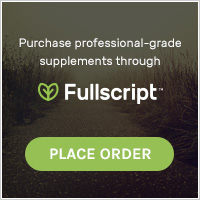When we think of improving our health, we usually think of our diet and lifestyle and we’re on the right path!
Over the last 20 years, we’ve modified our lifestyles to eat less processed foods and more organic fruit & vegetables, we’ve lowered our red meat intake, quit smoking, modified our alcohol and caffeine intake, and exercise regularly. Yet more and more of us are developing allergies.
What to do?
Take heart, for there are some things you may not have considered. So much of our global environment is out of our personal control, yet the toxic ingredients in our homes and workplace expose us to toxins every day of our lives – and we can control our personal environment with small yet powerful shifts starting right now.
The Very Air You Breath
According to the U.S. Environmental Protection Agency, the air inside the typical home is on average 2-5 times more polluted than the air just outside—and in extreme cases 100 times more contaminated—largely because of household cleaners and pesticides. Because the bathroom is small, often poorly ventilated and heavily contaminated, it’s one of the most dangerous places in the house for heavy metals, endocrine disruptors, and VOCs (volatile organic compounds). In fact, cleaning products were responsible for nearly 10 percent of all toxic exposures reported to U.S. Poison Control Centers in 2000, accounting for 206,636 calls. There are many natural, toxin free cleaning products easily available in your grocery store now.
Personal Grooming/Beauty Products
While in the bathroom, we use multiple personal care products – lotions, antiperspirants, makeup that is applied to our largest organ – our skin. Unfortunately, many of us use (and store) toxic chemicals in our bathrooms, as well. We’ve got airborne and surface toxins that our bodies must fight, day and night. So how can we lower our exposure to toxins?
- Reduce the use of antiperspirants. Opt for a natural, aluminum-free deodorant or crystal and consider using it only on workdays. You may be surprised by the difference you don’t notice!
- Switch to a fluoride-free, natural, toothpaste – now available in almost every national grocery chain.
- Toss those old prescriptions. You may be tempted to keep them around in case of ‘emergency’ but these may actually cause an emergency after their expiration date.
- Don’t use (or use less) antibiotic products and prescriptions. Antibacterial soap is no more effective at killing germs that is regular soap, and may even lead to the development of bacteria that are resistant to the products' anti-microbial agents – making it harder to kill these germs in the future. Include probiotics (kefir, yogurt or supplements) in your diet.
- Stop using cleaning products with harsh chemical preservatives. There are simple and inexpensive alternatives.
- Consider the materials in your home – specifically your wall paint, polyester fabrics, carpet material
- For those of you using cosmetics, consider that everything that touches your skin is absorbed into your body and your bloodstream. Read the labels for hormone disrupters such as ethylparaben, methylparaben, and propylparaben and potential carcinogens such as polyacrylamide, triethanolamine (which can form cancer-causing nitrosamines), and the artificial colors CI 16035, CI 19140 and PTFE (Teflon).
- Consider that shampoo and conditioners contain potentially cancer-causing dyes and synthetic fragrances that are known neurotoxins and skin irritants. Among its detergents, sodium lauryl sulfate can irritate skin and permanently damage eye tissue, and sodium laureth sulfate and cocamide MEA can be contaminated with 1,4-dioxane, a hormone disrupter associated with breast cancer. Cocamidopropyl betaine, another detergent, is a penetration enhancer, as is the solvent propylene glycol and the preservative tetrasodium EDTA; all allow other chemicals to penetrate more deeply into skin and bloodstream.
- Acne-fighting products contain a mix of strong detergents and surfactants (sodium lauryl sulfate, cetyl betaine, distearyl-dimonium chloride and steareth-21), chemical exfoliants (salicylic acid) and solvents (glycerin, alcohol, menthol) that are capable of removing the skin's natural oils, and synthetic skin conditioners for repairing some of the damage inflicted by the other ingredients. It contains two potential carcinogens (BHT and disodium EDTA) and fragrance ingredients among the most commonly reported contact allergens in the EU (behenyl alcohol, limonene benzyl salicylate, linalool, and hexyl cinnamal).
- The fragrance is found in almost every cleaning and beauty product. However, scientists are finding fragrance chemicals like the hormone-disrupting musk xylene in human breast milk. Medical research is proving that fragrances can trigger asthma; that the detergents in shampoos can damage eye tissue; and that hair-dye chemicals can cause bladder cancer and lymphoma.
Purchase our easy to use, affordable Advanced Plus Profile. Test yourself and set your mind at ease.

